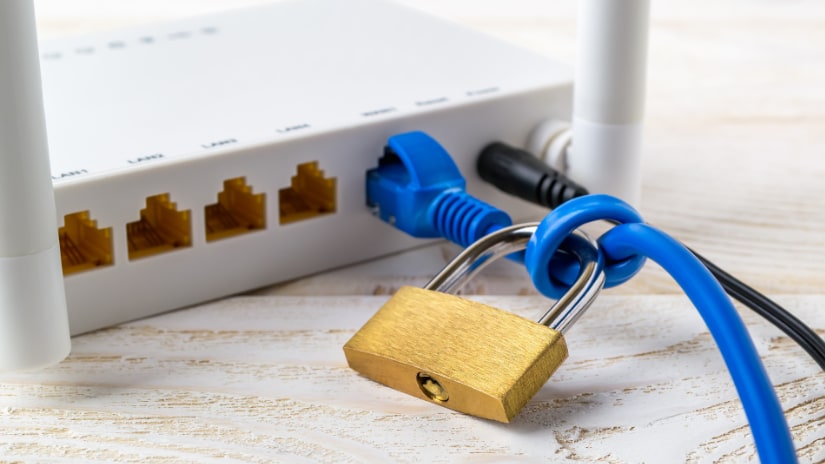- Are you looking at getting a new modem?
- Learn which providers have locked modems and which don’t
- NBN modems may not always be locked

When considering a switch to a new Internet plan, the question of whether you'll need a new modem isn't always a straightforward "yes" or "no." Compatibility with your technology type is crucial, as not all modems work with every Internet plan.
Some NBN providers, like Telstra, may require you to use its specific modem for troubleshooting and testing, though you can still choose to use your own and forgo certain benefits.
Numerous Internet service providers (ISPs) offer dependable NBN plans, each with its own set of advantages. When considering a switch to a different provider, such as for better service, cost savings, faster speeds, more inclusions, or a more reliable connection, the question of whether your NBN modem is locked to your current provider often comes up.
Are NBN modems locked?
Typically, an NBN modem should function on alternative networks unless the provider imposes restrictions. This applies even if the modem was purchased from an electronics retailer.
However, there are instances where an ISP may lock the modem to its network for quality and security purposes. In such cases, users might encounter slower Internet speeds if they switch to a different NBN provider while using its existing modem.
If you're worried about your modem being locked, it's a good idea to discuss this with your provider before making any switches. Additionally, if you have both a modem and a router in your home network setup and find that your modem isn't compatible with your new provider, you can still use your router with the new setup.
When you can use your own modem
There are some situations in which you can continue using your existing modem with a new Internet plan:
- Upgrading to Fibre to the Node (FTTN) or Fibre to the Building (FTTB) NBN and already having a VDSL modem router.
- Changing NBN plans at the same address.
- Having an unlocked pocket Wi-Fi, Wi-Fi dongle, or portable Wi-Fi hotspot and inserting a data-only SIM from a new provider.
When you can’t use your own modem
So, when can’t you use your modem? Take a look below:
- Upgrading to Hybrid Fibre Coaxial (HFC), Fibre to the Premises (FTTP), Fibre to the Curb (FTTC), Fixed Wireless, or Satellite NBN, where a new modem is required.
- Transitioning from FTTN to FTTP.
- Moving from NBN to 4G or 5G wireless broadband, or vice versa, where a new modem will be provided with your plan.
- Relocating to a new address with a different NBN connection type, meaning you need a suitable modem or router. You can find more information on the specific networking hardware required for each NBN connection type in the "Do I need a modem or a router" section of this guide.
So, which ISPs lock modems?
If your modem is locked to your current NBN providers’ plan, you may not be able to use it with a new provider.
While most NBN modems are not locked, some features may be restricted when switching providers. For example:
Belong modems
Belong models are pre-configured with the network. But, these shouldn’t be locked and you can configure your modem for use with other networks. Log into the configuration web page and reset it this time using your new logins.
When you have a Belong modem, you don’t need to return it when you switch providers as long as you have completed your contract. Just make sure that you’ve paid your final bill and returned any equipment that doesn’t belong to you.
Telstra modems
Telstra modems are not locked to the network. But, it does have fairly closed firmware on it. Unless you’re tech-savvy, you may have a hard time getting it configured to work with any other provider. So, you might be better off using an approved router for your current ISP.
More often than not, you need to return your equipment when you cancel or switch your service. This is especially the case for Telstra as its modems are leased. But, if you own the modem outright, then you can keep it and use it with a new provider as long as it's compatible.
Optus modems
Optus modems are not locked, but may not work with other providers. It’s better to check with your new service provider to assist you further.
The reason why Optus modems usually fail to work with other providers is that it uses a technology called G.INP. It helps to improve the quality and stability of your broadband connection. But, other networks don’t use this technology which makes it difficult to connect with its systems.
Should I use my own modem or get one from the provider?
Using a provider-supplied modem allows them to provide support for connecting and troubleshooting your equipment. Otherwise, the support and services it can give you may be limited.
Nevertheless, you can find the settings to manually configure your modem in your respective network’s technical settings.
In the rare event that your modem is locked to your previous ISP, you can always reach out to them to remove the locking codes—in most cases, it will oblige.
But, if it’s just not possible due to quality and security reasons, you will have to buy a new modem.
Do I need a modem or a router?
Determining whether you need a modem or a router depends on the type of NBN connection you have.
While both devices are crucial for getting online, its specific requirements vary based on your NBN connection type.
If your provider includes a modem with your plan, it should be compatible with your connection type and ready to use. However, if you choose to purchase your own, ensure it matches your specific networking needs. Here's what you'll need for each NBN connection type:
- Fibre to the Premises (FTTP) NBN: You'll need a router that connects directly to your NBN connection box on the wall.
- Hybrid Fibre Coaxial (HFC) NBN: You'll need a router that connects to the NBN connection box.
- Fibre to the Node (FTTN) NBN: You'll need a modem router that plugs into your telephone socket, facilitating the NBN connection.
- Fibre to the Building (FTTB) NBN: You'll need a modem router that connects to the telephone socket used for the NBN connection.
- Fibre to the Curb (FTTC) NBN: You'll need a router that plugs into the NBN Connection Box provided by NBN Co.
- Fixed Wireless NBN: You'll need a router that connects to the connection box supplied by NBN Co.
- Satellite NBN: You'll need a router that connects to the satellite modem provided by NBN Co.
Understanding your specific NBN connection type will help you choose the right networking hardware for your needs.
Ready to switch to a new NBN provider?
If you’re not satisfied with the value of your current NBN plan, it’s best to contact your current provider first before switching to see if you can get a better deal.
If not, think about contacting the experts at Compare Broadband for help instead.


